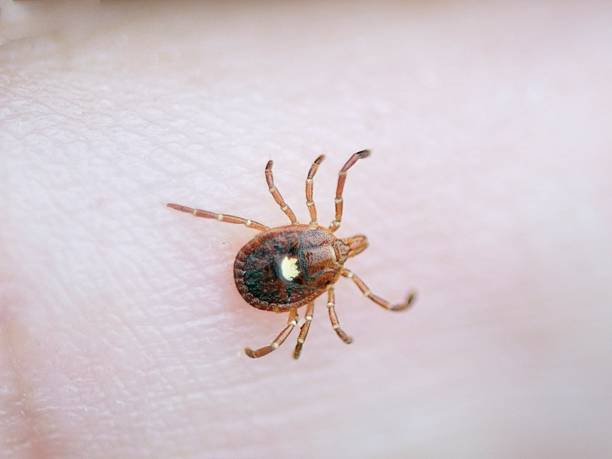
Meat Allergy On The Rise Reportedly Caused By Lone Star Tick, CDC Reports
On any given day, between 63% and 74% of people in North America consume processed or red meat, according to the National Library of Medicine. It’s very clear that many Americans enjoy their steak and hamburgers, but one small obstacle stands in the way of that enjoyment — the tiny, but powerful Lone Star Tick.
The Lone Start Tick spreads a sugar molecule, called sugar alpha-gal, via its spit. There is a high possibility that this sugar will trigger alpha-gal syndrome, a condition that causes difficulty breathing, heartburn, diarrhea, hives, nausea, and a drop in blood pressure, among other symptoms, according to the Centers for Disease Control and Prevention. Individuals who consume infected beef or pork meat, suffer the consequences around two to six hours after the consumption, essentially becoming severely allergic to red meat.
Alpha-gal is a sugar found in meat from mammals, such as pork and beef, and mammal-made products, such as milk products. AGS is a severe allergy some may experience after they consume a product containing the sugar.
While growing evidence suggests that AGS is mostly caused by the bite of a lone star tick, other types of ticks have yet to be ruled out by the CDC. The organization reports that individuals in the southern, midwestern, and mid-Atlantic regions of the United States have identified more people who tested positive from consuming infected red meat products.
Between 2010 and 2022, there was suspected to be more than 110,000 cases of identified alpha-gal syndrome. However, to receive a positive diagnosis, a diagnostic test and clinical exam is required — something that many individuals with suspected alpha-gal syndrome may not get. A second report states that as many as 450,000 Americans are estimated to have developed the allergy, making it the 10th most common food allergy in the United States, according to Dr. Scott Commins, a University of North Carolina researcher who co-authored both research papers published by the CDC.
While health officials stated they are not aware of any confirmed deaths, it is evident that people with the allergy suffer bewildering symptoms. Healthcare providers are recommending allergy skin testing if people suspect they may have the allergy and refreshing about how to prevent tick bites to reduce chances of developing AGS.
Featured Image: The Lone Star Tick, Amblyomma Americanum, crawling on fingers via Joesboy on iStock Photos


